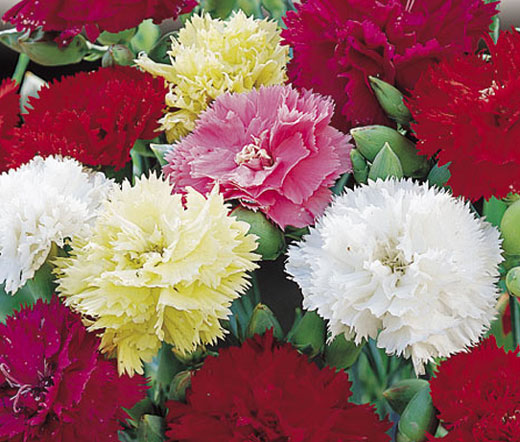Rajib Roychowdhury, Jagatpati Tah
Cytogenetics and Plant Breeding Section, Botany Department (UGC-CAS), The University of Burdwan, Burdwan-713104, West Bengal, India
Key words: Dianthus caryophyllus, genetic gain, genetic variability, heritability, quantitative characters.
Abstract
 The present study was conducted to evaluate the nine Dianthus genotypes, including normal and mutagen treated, to assess the magnitude of variability and to pick up the heritable component of variation present in the quantitative traits. The analysis of variance revealed highly significant (P< 0.05 or 0.01) differences for all the characters studied, indicating the presence of substantial genetic variability. The phenotypic co-efficient of variation (PCV) was higher than genotypic co-efficient of variation (GCV) for all the characters studied, this shows the influence of the environmental effect on the characters. Highest GCV and PCV were noticed for total branches per plant and lowest for total no. of flowers per plant along with plant height (cm) at 50% flowering phase and flower diameter (cm) only in PCV. Broad sense heritability ranged from 33.33 (Days to seed germination) to 95.30 (Plant height at 50% flowering phase) per cent. Total leaves and branches showed high, plant height, days to branching and seeds per inflorescence showed moderate and flower per plant showed low genetic gain. Thus, these traits may serve as an effective selection parameter during breeding programme for crop improvement.
The present study was conducted to evaluate the nine Dianthus genotypes, including normal and mutagen treated, to assess the magnitude of variability and to pick up the heritable component of variation present in the quantitative traits. The analysis of variance revealed highly significant (P< 0.05 or 0.01) differences for all the characters studied, indicating the presence of substantial genetic variability. The phenotypic co-efficient of variation (PCV) was higher than genotypic co-efficient of variation (GCV) for all the characters studied, this shows the influence of the environmental effect on the characters. Highest GCV and PCV were noticed for total branches per plant and lowest for total no. of flowers per plant along with plant height (cm) at 50% flowering phase and flower diameter (cm) only in PCV. Broad sense heritability ranged from 33.33 (Days to seed germination) to 95.30 (Plant height at 50% flowering phase) per cent. Total leaves and branches showed high, plant height, days to branching and seeds per inflorescence showed moderate and flower per plant showed low genetic gain. Thus, these traits may serve as an effective selection parameter during breeding programme for crop improvement.
Get the original articles in Source: Volume 1, Number 5, October 2011 – IJB
Published By: International Journal of Biosciences (IJB)
Related Post: Anti-inflammatory and cicatrizing activity of Baphia nitida Lodd. exudates
